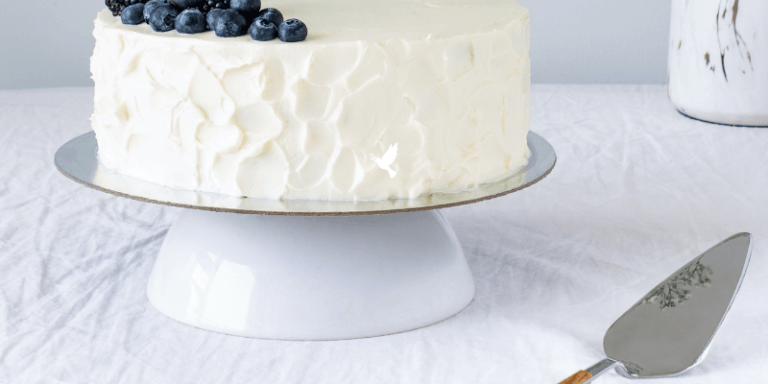by Diana Oestreich
Our dividing lines over politics are clear, but what does it cost us when we stay within them? Politics gives us a place to start understanding another person’s values on a host of issues, but it can’t, in fact, tell us what we most want to know. Knowing another’s political ideology doesn’t necessarily tell us who our co-conspirators are who are also working to create a more just and Jesus-looking world. We only find our co-conspirators when we move beyond simply knowing someone’s politics and into relationships. It’s in relationship, not political ideology, where we find the hope of a world that shouts the human dignity of every single person made in God’s image.
Political ideology is like the buttercream icing on the cake. It’s only an inch deep. It doesn’t tell you what kind of cake is underneath. White frosting may lead you to believe it’s a vanilla cake, but that could mean you’re missing out on red velvet.
A fierce woman named Taran in Iran taught me this right after we sent her daughter into open heart surgery. I grew up hearing Iran was my enemy, so I believed Taran would be as cold or suspicious of me as I was of her. Without forming a relationship, I had lumped her into my ideological prejudice. But her bright eyes locked on mine, pinning me to the floor with her words: “Never allow your government to tell you who to hate or to fear, Diana.” She knew the truth and called me on it unapologetically. Her government and its political ideology didn’t fully represent her, the same way my government didn’t fully represent me. Political ideology is too small a door to walk through. It cuts off our possibility to collaborate together towards the world we want while holding onto our differences.
Growing up, I longed to be invited to a greater goodness and a bigger story beyond the political and denominational boundaries I was born into. When I was a senior in high school, we had to take a speech class. I gave a speech supporting the death penalty—something along the lines of: If someone takes a life, they should be prepared to give their own life. I was a 17-year-old, born-again Baptist, pro-life, bible-camp Christian who was handed beliefs and a lens through which I saw the world.
I now write letters to a man named Jessie on death row. We swap parenting stories, playlists, and book recommendations. I can’t see God’s peace in a world where Jessie is going to be killed in payment for his crime, where his kids will become orphans.
Sometimes he tells me that he only believes in the death penalty for people who hurt kids. I understand where he is coming from. But I still push back because since having a baby, I’ve been able to see other people’s babies. I’ve been overwhelmed with experiencing a relentless parental love that makes me fight fiercely for every single person’s life because I know we belong to each other. That love compels me to write to him and say, “Everyone is someone’s child, no matter what they’ve done or how old they are.” He is someone’s child, and his life matters.
What was the difference between 17-year-old me defending the death penalty and 42-year-old me defending a man’s life, even to himself, on death row? Relationships with people who showed me how God already loved those I didn’t.
What rescued me from seeing human beings as disposable? A never ending, never giving up, forever kind of love that others showed me by being in relationship with me. These relationships reminded me—taught me—that love was my life preserver, rescuing me from an ideology of us versus them, good versus bad, worthy of redemption versus beyond repair.
Building relationships across lines of difference, including political ideology, is how we bear witness to a future good that we can’t imagine yet and the hope that, in the process, we will be transformed by the peace of Christ through the love of Christ. Relationships were the antidote to my superficial political ideology that kept my heart three sizes too small, as the Grinch would say.
You may have dismissed 17-year-old me because the icing on my cake politically clashed with yours. But God knew what was underneath—a red velvet cake of deep compassion that hadn’t been unlocked yet.
We build relationships beyond politics because love compels us to believe in each other’s unfinished stories and our possibility to do good and build a good world together. Because to love mercy, to do justice, and to walk humbly with God requires us all.
Being seen and valued by someone across “on the other side” is what unlocked me to be a co-conspirator, waging peace and working toward justice. Imagine the good that is possible when we build relationships across our political camps. What are your own political divides that may be inhibiting relationships?
May God give us eyes to recognize the value in others, especially those across the political divide, that we might build relationships with “the other” and put into action God’s redemption story for our world.”

Diana Oestreich is a soldier-turned-peacemaker and author of Waging Peace. She heard God’s call to love her enemies in the most unlikely place: on the battlefield of Iraq. Diana is a peacemaker, author, activist, veteran, and former sexual assault nurse. Speaking across the country, she empowers us to identify our own rural, urban, political, or religious divides to cross our own “enemy lines” in order to remake the world and heal all that’s tearing us apart.

